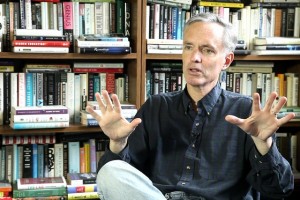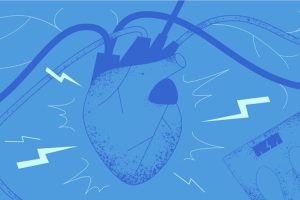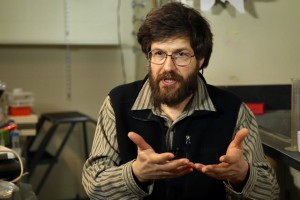Engineering More Effective Antibiotics
Boston University Prof. James Collins on bacterial resistance, active mutagens, and efficacy of biocides
How to measure temperature in a cell? How does a computer operate on nano-level? What is the utility of quantum computers? These and other questions are answered by Harvard Professor of Physics, Mikhail Lukin.
Over the past decade or so, an intensive research has been carried out into identifying and studying new types of quantum bits. In other words, new types of quantum systems, which can be isolated, manipulated and measured. It turns out, that some of those systems can be pretty robust, and indeed we can now implement small-scale quantum computers, which are composed from several quantum bits, inside the solid state system and we can control, manipulate and measure them under ambient conditions at room temperature.
The specific direction, which my group is currently exploring, involves the use of impurities in a diamond, which behaves like an isolated atom-like object, has essentially atomic scale and also has properties, which are very similar to those of isolated atoms. Those isolated atoms, however, are sensitive to the surrounding environment and, in fact, they can be explored to measure electromagnetic fields or to measure temperature. What makes them so especially unique is that these impurities can be controlled under ambient room temperature conditions, and they can be integrated into the living objects. As a result we now have a new tool to explore biological systems at completely new scales involving, for example, subcell resolution.
Under idealized laboratory conditions it is possible to create this kind of entangled state, and in a matter of fact this is the key to the operation with quantum computers, to speed up quantum computers. And the question is can we take advantage of this kind of quantum mechanical entanglement to improve sensors operating in realistic laboratory conditions, perhaps even inside of the living object, inside the living cells?

Boston University Prof. James Collins on bacterial resistance, active mutagens, and efficacy of biocides

Cardiologist Maarten Simoons on symptoms of a heart attack, prevention of the disease, and life-saving volunte...

Biologist Konstantin Khrapko on genes that regulate the aging program, genome of a nematode, and the effect of...